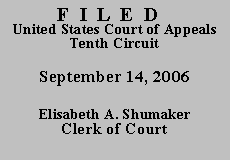

| UNITED STATES OF AMERICA,
Plaintiff-Appellee, v. MICHAEL A. SARBER, Defendant-Appellant. |
|
Under Hahn, we consider "(1) whether the disputed appeal falls within the scope of the waiver of appellate rights; (2) whether the defendant knowingly and voluntarily waived his appellate rights; and (3) whether enforcing the waiver would result in a miscarriage of justice." Id. at 1325. The miscarriage-of-justice prong requires the defendant to show (a) his sentence relied on an impermissible factor such as race; (b) ineffective assistance of counsel in connection with the negotiation of the appeal waiver rendered the waiver invalid; (c) his sentence exceeded the statutory maximum; or (d) his appeal waiver is otherwise unlawful and the error "seriously affect[s] the fairness, integrity or public reputation of judicial proceedings." Id. at 1327 (quotation omitted). The government's motion addresses these considerations, explaining why none undermines defendant's appeal waiver here. We agree.
Defendant does not contest that he "knowingly and voluntarily admitted his guilt at the time of the Plea," "understood the contents of his Plea Agreement, including the possible punishment," and "understood at the time of Plea that the written Plea Agreement included a Waiver of his right to appeal the conviction and sentence imposed and the application of the guidelines." Appellant, Michael A. Sarber's Response to Appellee's Motion for Enforcement of Plea Agreement at 3. Specifically with respect to the Hahn test, he concedes that the sentencing issues to be raised on appeal fall within the scope of his waiver, that the plea colloquy reflects that the waiver was knowing and voluntary, and that the first three miscarriage-of-justice factors do not apply. Id. at 5-6. His sole argument against enforcement of his appeal waiver is that the "waiver is otherwise unlawful in that the court erred in adopting the PIR findings [regarding the two predicate offenses the court used to establish his career offender status], seriously affecting the fairness and integrity of the judicial proceedings." Id. at 6.
Defendant's argument is fundamentally misdirected. The waiver exception he invokes looks to whether "the waiver is otherwise unlawful," Hahn, 359 F.3d at 1327 (quotation omitted and emphasis added), not whether some other aspect of the proceeding may have involved legal error. Defendant's position that his appeal waiver should be excused due to alleged error in the determination of his sentence entails what Hahn noted as "the logical failing[] of focusing on the result of the proceeding, rather than on the right relinquished, in analyzing whether an appeal waiver is [valid]."(1) Hahn, 359 F.3d at 1326 n.12.
Thus, "[t]he relevant question . . . is not whether [defendant's] sentence is unlawful . . ., but whether . . . his appeal waiver itself [is] unenforceable." United States v. Porter, 405 F.3d 1136, 1144 (10th Cir.), cert. denied, 126 S. Ct. 550 (2005). Indeed, to hold that alleged errors under the sentencing guidelines render an appeal waiver unlawful would nullify the waiver based on the very sort of claim it was intended to waive. This circular argument has been repudiated in many cases.(2) See, e.g., United States v. Morgan, 386 F.3d 376, 381-82 (2d Cir. 2004), cert. denied, 1543 U.S. 1169 (2005); United States v. Andis, 333 F.3d 886, 892 (8th Cir. 2003); United States v. Brown, 232 F.3d 399, 403-04 (4th Cir. 2000); United States v. Kratz, 179 F.3d 1039, 1041 (7th Cir. 1999). While we have not explicitly addressed the point after Hahn, we previously enforced an appeal waiver to dismiss an appeal raising error under the sentencing guidelines. See United States v. Atterberry, 144 F.3d 1299, 1300-01 (10th Cir. 1998).
Defendant has not asserted any claim regarding the critical issue whether his appeal waiver itself was unlawful, much less shown that enforcement of the waiver would seriously affect the fairness, integrity, or public reputation of the judicial proceedings. In the latter regard, we note (1) that the plea agreement clearly set out the maximum sentence defendant faced and explained the appellate rights he relinquished in exchange for the benefits offered by the government,(3) and (2) that the sentence imposed by the district court complies with the terms of the agreement and the understanding expressed by the defendant at the plea hearing. See Porter, 405 F.3d at 1145.
Having reviewed the pertinent materials, we find nothing to except this case from the consequences of the broad appeal waiver included in defendant's plea agreement. The government's motion to enforce the waiver is GRANTED and the appeal is DISMISSED. The mandate shall issue forthwith.
ENTERED FOR THE COURT
*. This panel has determined unanimously that oral argument would not materially assist the determination of this appeal. See Fed. R. App. P. 34(a)(2); 10th Cir. R. 34.1(G). The case is therefore ordered submitted without oral argument. This order and judgment is not binding precedent, except under the doctrines of law of the case, res judicata, and collateral estoppel. The court generally disfavors the citation of orders and judgments; nevertheless, an order and judgment may be cited under the terms and conditions of 10th Cir. R. 36.3.
1. Hahn drew this distinction in relation to whether an appeal waiver was knowing and voluntary, 359 F.3d at 1326 & n.12, but it is no less apt in relation to whether such a waiver was lawful.
2. Of course, if a sentence deviates from the plea agreement's terms or the defendant's expressed understanding at the time of his plea, the error involved could undercut an appeal waiver in a non-circular way, but we do not have such a situation here.
3. We emphasize that the nature and extent of appellate rights relinquished are negotiable parts of the plea bargain process. Defendants can preserve sentencing errors for appeal by specifically excepting them from waiver, see United States v. Green, 405 F.3d 1180, 1188-89 (10th Cir. 2005), or, for constitutional errors, by reserving the right to appeal an "illegal sentence," see United States v. Groves, 369 F.3d 1178, 1182 (10th Cir. 2004).